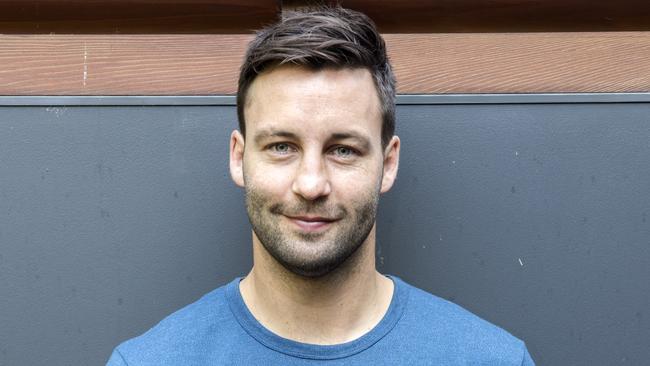Men, we should learn from women’s discomfort
WE men have to take some weight from women’s shoulders; it’s simply not their responsibility to act alone addressing sexual harassment and inequality, writes Michael Kimmel.
WE are seeing a steady stream of male anxiety emerge about the #metoo movement — from water cooler, to the opinion pages, to the floor of parliament:
“I don’t know what to say anymore.”
“I am never sure what women think is offensive.”
“I feel like I’m walking on eggshells.”
Many men feel uncomfortable, afraid they’ll be misinterpreted, their intentions misunderstood.
Women: does this sound familiar?
Actually, women have been feeling uncomfortable in the workplace, afraid their actions will be misinterpreted or misunderstood for about three centuries. We men have been uncomfortable for about three months.
Guys: We should think about that discomfort for a moment. It’s an opportunity for empathy, for connection. For the first time, I think we men are getting to know how women have been feeling.
When I hear men say they don’t know what to say and that they don’t want to offend anyone, what I also hear is very good news: most men do not want to be jerks. (Well, most men, Senator Leyonhjelm notwithstanding.)
The overwhelming majority of men do not want to be jerks. We do not want to make women uncomfortable, we don’t want to say or do things that are offensive.
Well, here’s a simple example.

We’ve all been in that situation where a guy says or does something stupid and sexist. There’s an awkward silence, maybe some embarrassed laughter as men wait to see if the woman affected will call it out, ramping up the awkwardness in the room. The woman has to decide whether she’s going to say something and make everyone feel miserable or cop it and be miserable herself.
The good blokes might privately apologise to the woman later for the man’s behaviour in an attempt to show support. But instead of being grateful, the woman is actually thinking “where were you when I needed you?”
What might have happened differently? The obvious answer is that we men could speak up, right then and there, and say that we aren’t comfortable with those kinds of statements or that kind of behaviour. But we don’t typically do that. Why not?
I think we’re afraid. We’re afraid that if we speak up, we will be marginalised, we will be kicked out of the men’s club, we’ll become, in effect, honorary women. Men know that doing the right thing sometimes has costs, and most of us are too frightened to jeopardise what we have. And so, we betray women, abandon our own ethics, and slink away uncomfortably.
What I know is that most men feel uncomfortable with sexist behaviour but each one feels too frightened to act alone.
So this could actually be our “me too” moment.
When a jerk engages in sexist jokes, language or behaviour, the good guys have to speak up, act, call it out. And other good guys must back them up.
It might be too scary for one guy to act, but when two guys call it out that opens a space for the others to chime in. And it could stop right there and then.
This is what it means to be allies, men. To stand up and do the right thing, because, well, because we know it’s right. And in order to be effective allies, we have to learn to support other men doing the right thing, so that we can challenge those men who don’t.
We realise that men can challenge the jerks and support women, while also supporting other men.

Where are the legions of good Australian men standing with your Prime Minister holding Senator Leyonhjelm accountable for his sexist outbursts?
Where are the other footy legends backing Jimmy Bartel in calling out the sexist and offensive joke made on air by their mates?
We men have to take some of this weight from women’s shoulders; it’s simply not their responsibility to act alone addressing sexual harassment and inequality. Men must challenge the sexist behaviours of other men because it’s wrong, and because it undermines women’s confidence and effectiveness in the workplace and the community.
The pay-offs are enormous. It’s good for women — and it’s good for men. A community that is safer for women is also safer for men. With clear boundaries, men will also know exactly where they stand at all times.
And it’s good for business. A workplace where each employee feels valued and safe is a workplace where everyone can contribute, to be their best. That spells profits to me.
Men, we know how to do this. Here’s a place where our mateship and easy camaraderie can be really emphasised, as good blokes support each other doing the right thing, calling it out instead of turning a blind eye when someone misbehaves.
Ending sexual harassment is not women’s job. It’s everyone’s responsibility. We don’t need to rescue women, but we should act ethically because by supporting one another, we also enhance our own lives and the lives of women and girls, we create better friendships with other men, and have the satisfaction that comes from doing the right thing.
Michael Kimmel is one of the world’s leading experts on men and masculinities and advocate of engaging men to support gender equality. He is the SUNY Distinguished Professor of Sociology and Gender Studies at Stony Brook University, author and founder of the Center for the Study of Men and Masculinities.
Originally published as Men, we should learn from women’s discomfort
